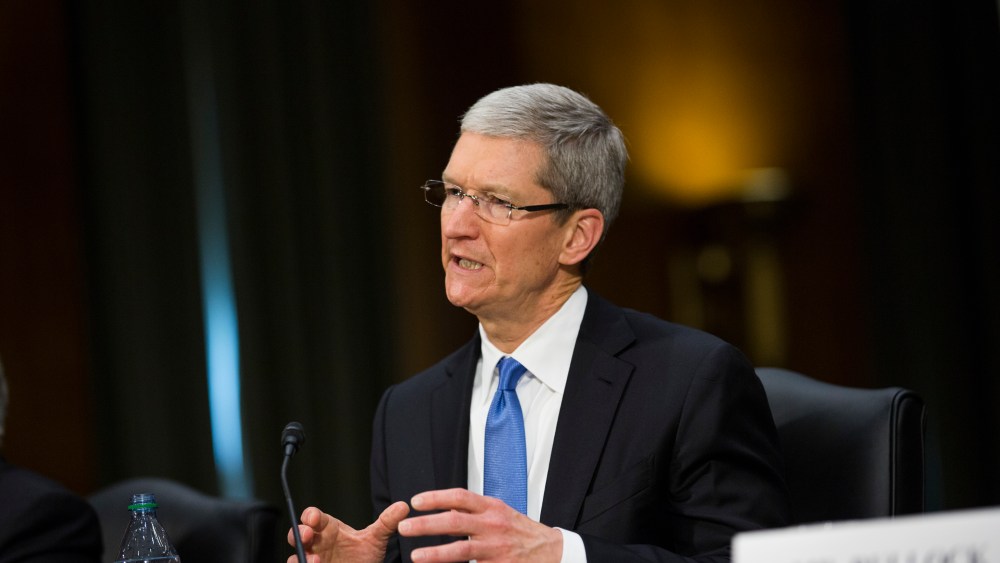
In March 2024, the Department of Justice filed a case against Apple — accusing the tech giant of monopoly practices. This May, a federal judge ruled that Apple was in contempt of an injunction related to App Store restrictions — Apple is currently appealing the ruling.
In short, Apple’s App Store is being ordered to loosen its strict regulations. The judge ruled that Apple must allow App Store developers to direct users to other alternative payment methods and now prohibits Apple from collecting commissions on these external transactions.
Should the ruling be upheld, developers will finally be free to innovate and integrate seamless payments, loyalty payments and crypto wallets without having to navigate the platform’s strict rules and pay steep 30 percent fees to Apple. Moreover, this ruling could see the boom of super apps — multifunctional platforms that are already popular in places like Asia — in the U.S.
Here, Ryan Breslow, chief executive officer of Bolt, sat down with WWD to discuss why super apps are poised to thrive for the first time in the U.S. market, the potential opportunities for retailers and brands, the future of connected retail and financial integration and more.
WWD: With the recent DOJ Apple ruling, how can super apps now succeed in the U.S.? What opportunities are there for retailers and brands?
Ryan Breslow: The DOJ’s ruling against Apple is a game-changer. For the first time, developers have the freedom to innovate without Apple’s 30 percent tax or restrictive platform rules. This means super apps can finally bring seamless payments, loyalty and crypto wallets directly into iOS apps.
For retailers, this is about reclaiming control: recovering lost margins, building deeper customer relationships and unlocking new ways to engage shoppers without ceding control to Apple or other gatekeepers. It’s a chance to redefine what seamless, personalized retail can be across mobile, web and in-store. I know Bolt is going to lead the way.
WWD: In your opinion, why have super apps failed in the U.S. in the past — but thrived in other markets, particularly Asia?
R.B.: Super apps have struggled in the U.S. because of three major roadblocks. Apple and Google tightly restricted “apps within apps,” while platforms like WeChat and Alipay in China had government support to become multiservice giants.
Unlike Asia, the U.S. already had mature payment systems like credit cards and PayPal, where consumers leapfrogged to mobile payments with QR codes and real-time bank transfers.
Building a super app in the U.S. means navigating a fragmented regulatory landscape — 50 state money transmitter licenses and multiple federal agencies — while a single license in China or Indonesia can cover hundreds of millions of users.
But this is changing. The DOJ ruling, combined with innovations like FedNow — the Federal Reserve’s new real-time payment system — will soon make instant 24/7 bank transfers a reality in the U.S. This is a critical piece of infrastructure that could finally give super apps the foundation they need to thrive here: faster payments, lower fees and a more seamless user experience.

Ryan Breslow, chief executive officer of Bolt.
WWD: Consumers now expect seamless shopping experiences in-store and online. How do super apps facilitate an integrated omnichannel strategy for retailers and brands?
R.B.: Super apps create seamless shopping by unifying identity, payments and loyalty across channels. Imagine a shopper using a single Bolt ID to log in online, pay in-store and redeem rewards in real-time. The app can even shift into “store mode” as a customer walks in, surfacing personalized offers or connecting them directly to a sales associate. It’s about building continuous, personalized relationships at every touchpoint — the holy grail of omnichannel retail.
WWD: How do super apps leverage data analytics to provide personalized experiences without compromising privacy and data security?
R.B.: Personalization and privacy aren’t mutually exclusive — you can have both. Super apps can keep sensitive data on-device using cutting-edge encryption, tokenization and techniques like federated learning to deliver personalized experiences without exposing raw user data.
At Bolt, we prioritize zero-party data, where users choose to share their preferences directly rather than being tracked without consent. This isn’t just a better way to do business; it’s the future of digital trust. Tools like verifiable credentials let users prove facts, like being over 21, without revealing personal details, ensuring personalization and privacy. We believe the next wave of digital experiences will be built on this kind of transparent, user-first data philosophy.
WWD: How can Bolt’s integrating features like one-click payments, crypto wallets and peer-to-peer transactions enhance the shopping experience and loyalty programs for large retailers?
R.B.: Bolt is moving from “one-click checkout” to “one-click everything” — transforming how people shop, pay and connect. Our 80 million users already drive higher conversions, but adding crypto wallets, NFT-based loyalty rewards and peer-to-peer payments takes this to the next level. Imagine turning loyalty into an asset: customers earn tokens they can trade, redeem or sell.
Peer-to-peer payments mean shoppers can split bills, share expenses or even resell items without leaving the app. This keeps engagement high and transactions inside your ecosystem, with a unified ledger giving brands real-time visibility, whether customers pay with cards, crypto or points. This is the future of connected commerce.
WWD: What challenges do you foresee with this financial integration into retail apps and how is Bolt preparing to address compliance across different markets?
R.B.: Regulatory compliance is a critical piece of the puzzle for super apps, but we’ve built Bolt to tackle these challenges head-on. We hold money transmitter licenses in 45 U.S. states and e-money licenses in Europe, giving us a strong foundation for global growth. We’ve also developed a unified Know Your Customer and Anti-Money Laundering system, which means users only need to verify their identity once across all merchants on our platform. KYC is the process of verifying a customer’s identity to prevent fraud and ensure security, while AML is a set of safeguards that prevent criminals from using financial systems to disguise the origins of illegally obtained money.
To further enhance security, we monitor crypto transactions in real time and work with insured banks to safeguard digital assets like stablecoins, which are digital currencies designed to maintain a stable value. Our platform is also designed to be modular, allowing brands to toggle features based on local regulations, whether GDPR in Europe or state-specific privacy laws in the U.S. We’ve made these early investments so brands can confidently integrate financial tools without worrying about constantly shifting regulatory landscapes. It’s about building trust at scale.
#DOJs #Apple #Case #U.S #Retail #Game






